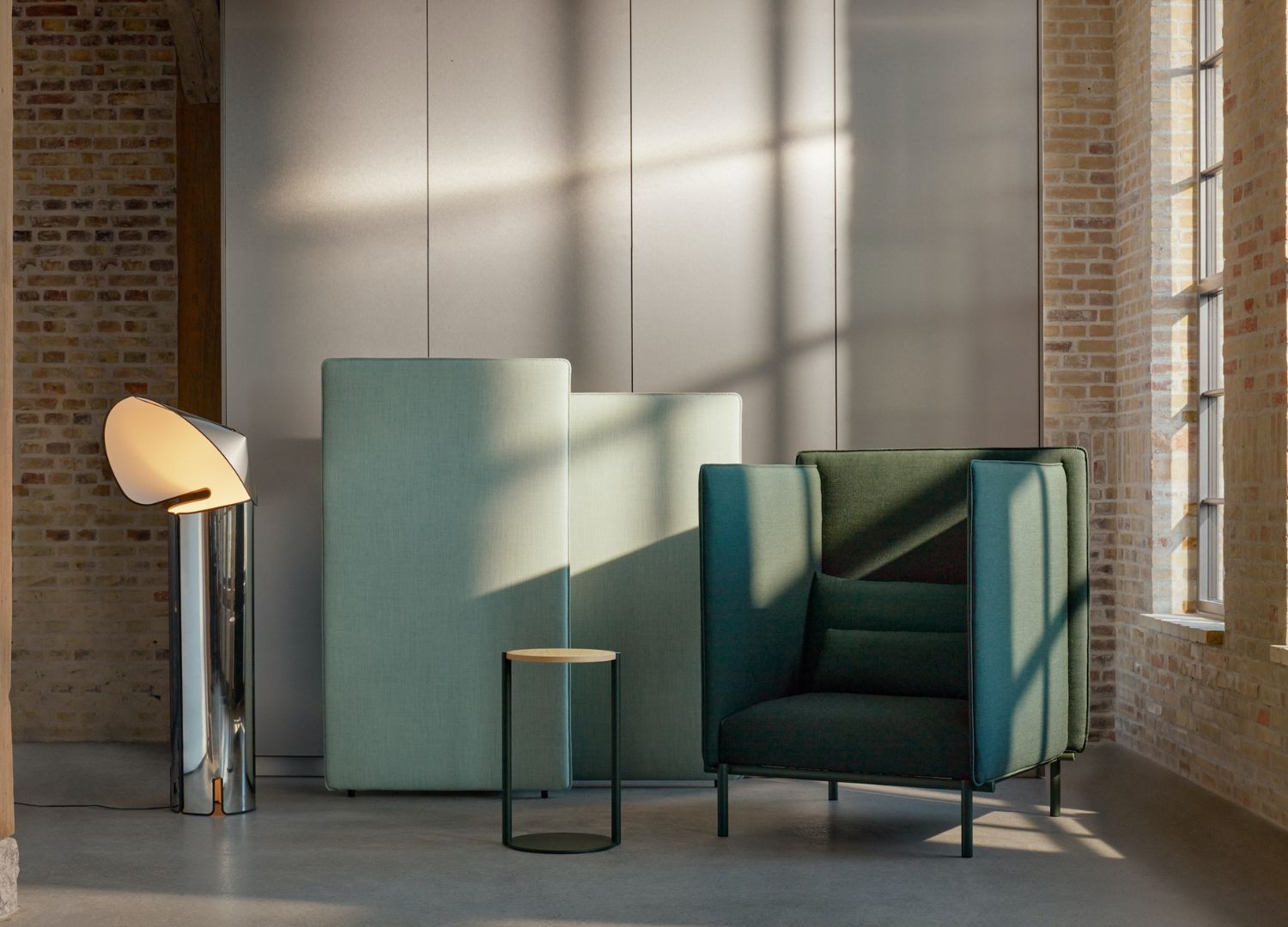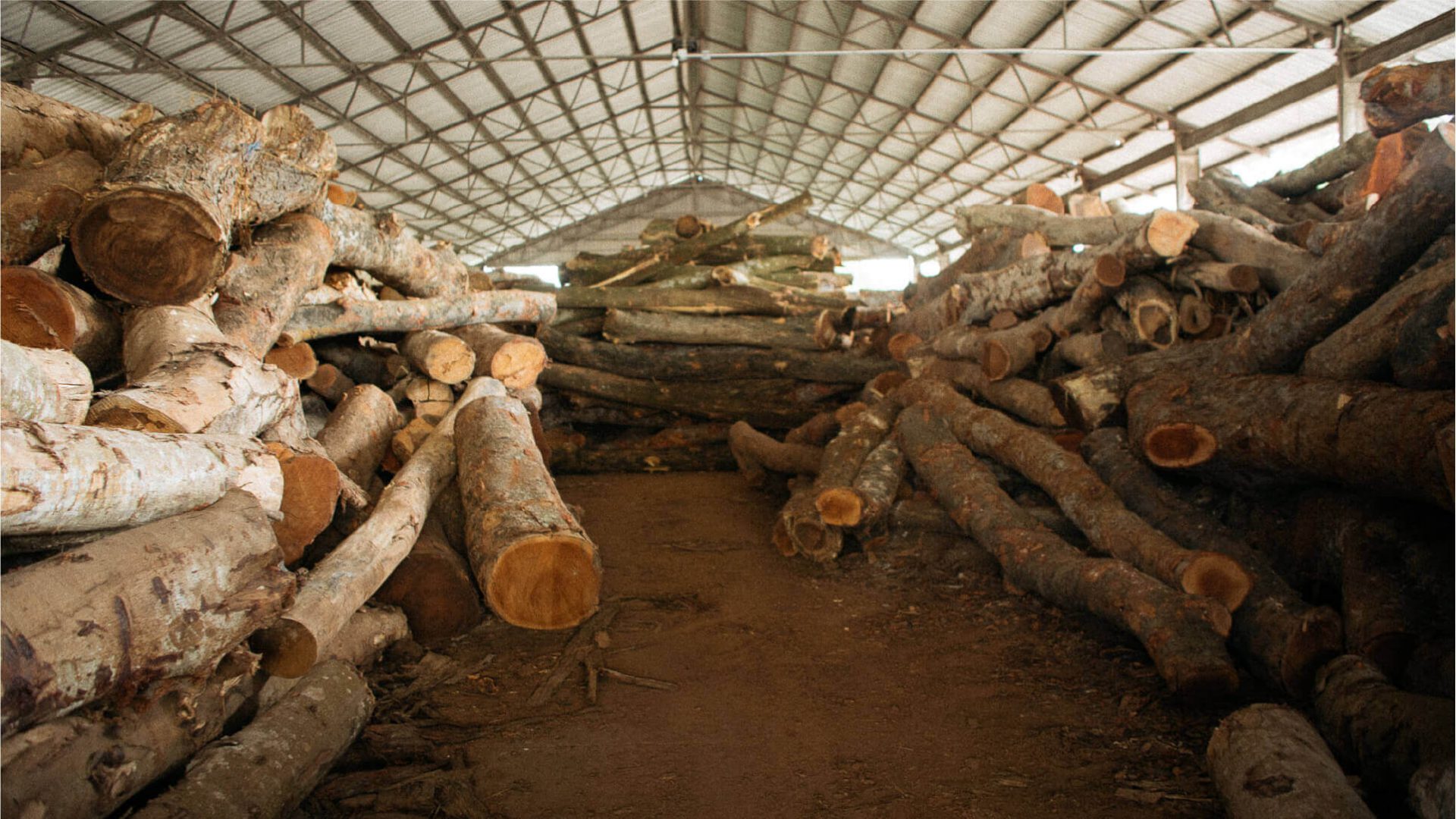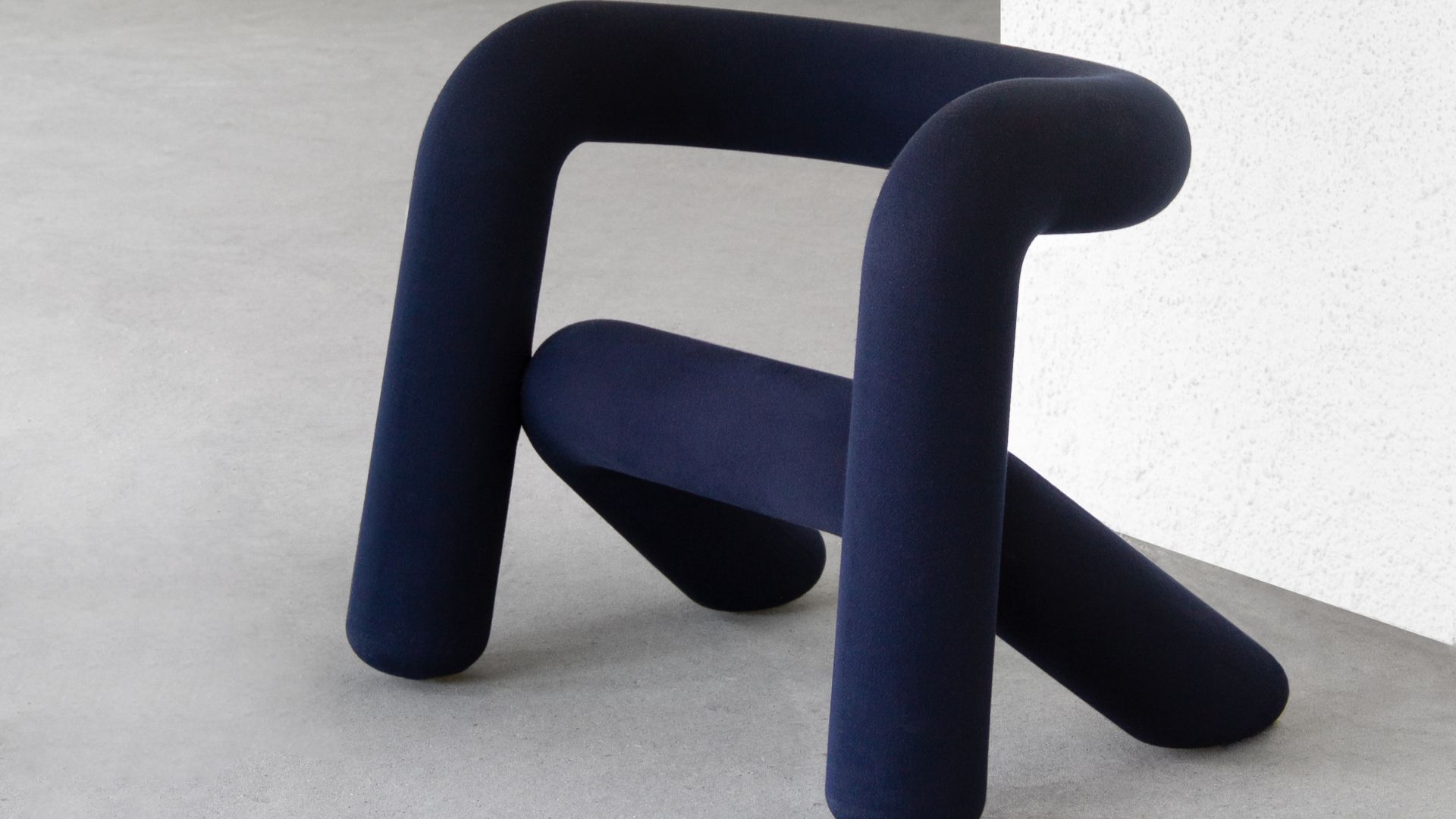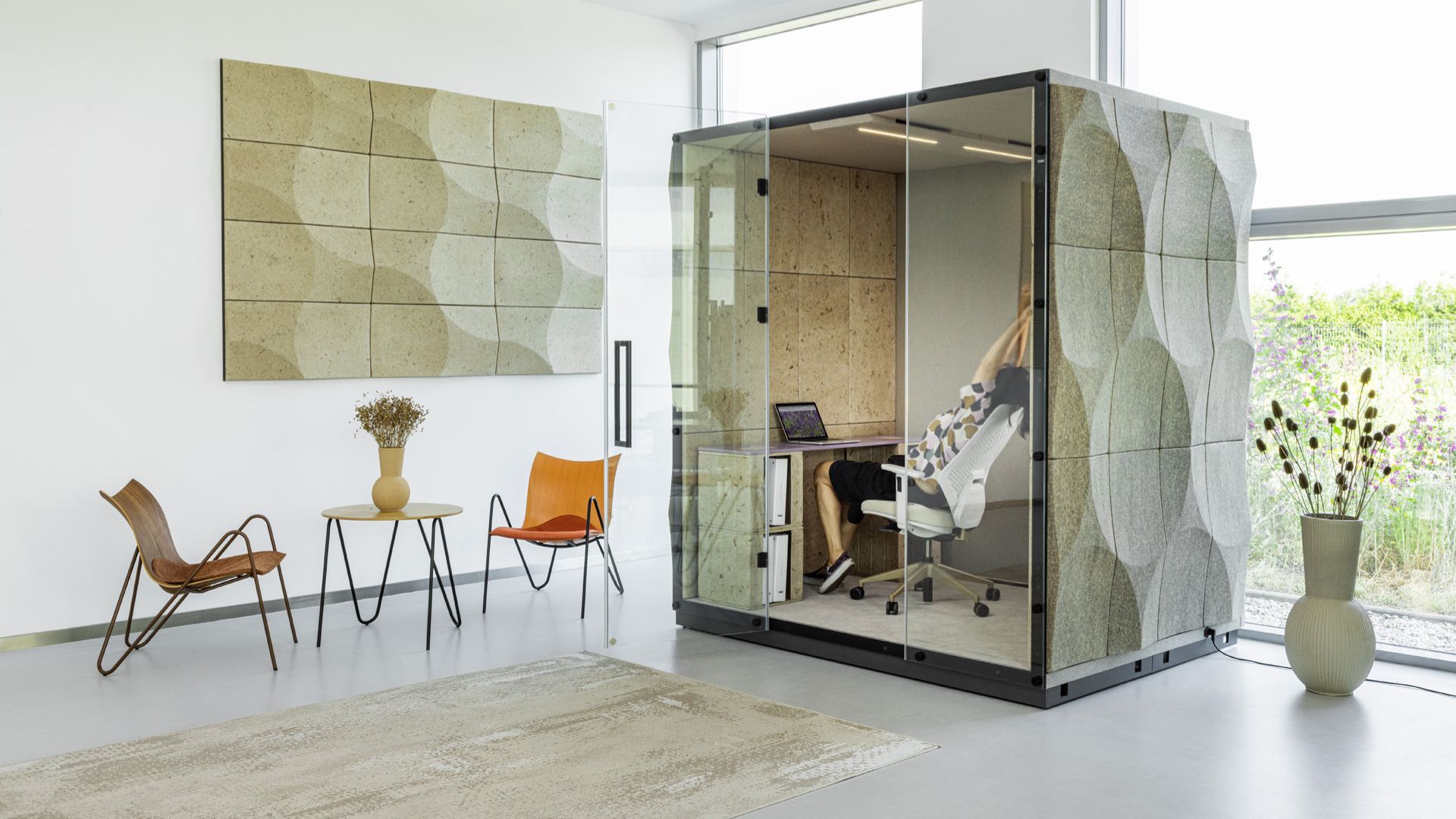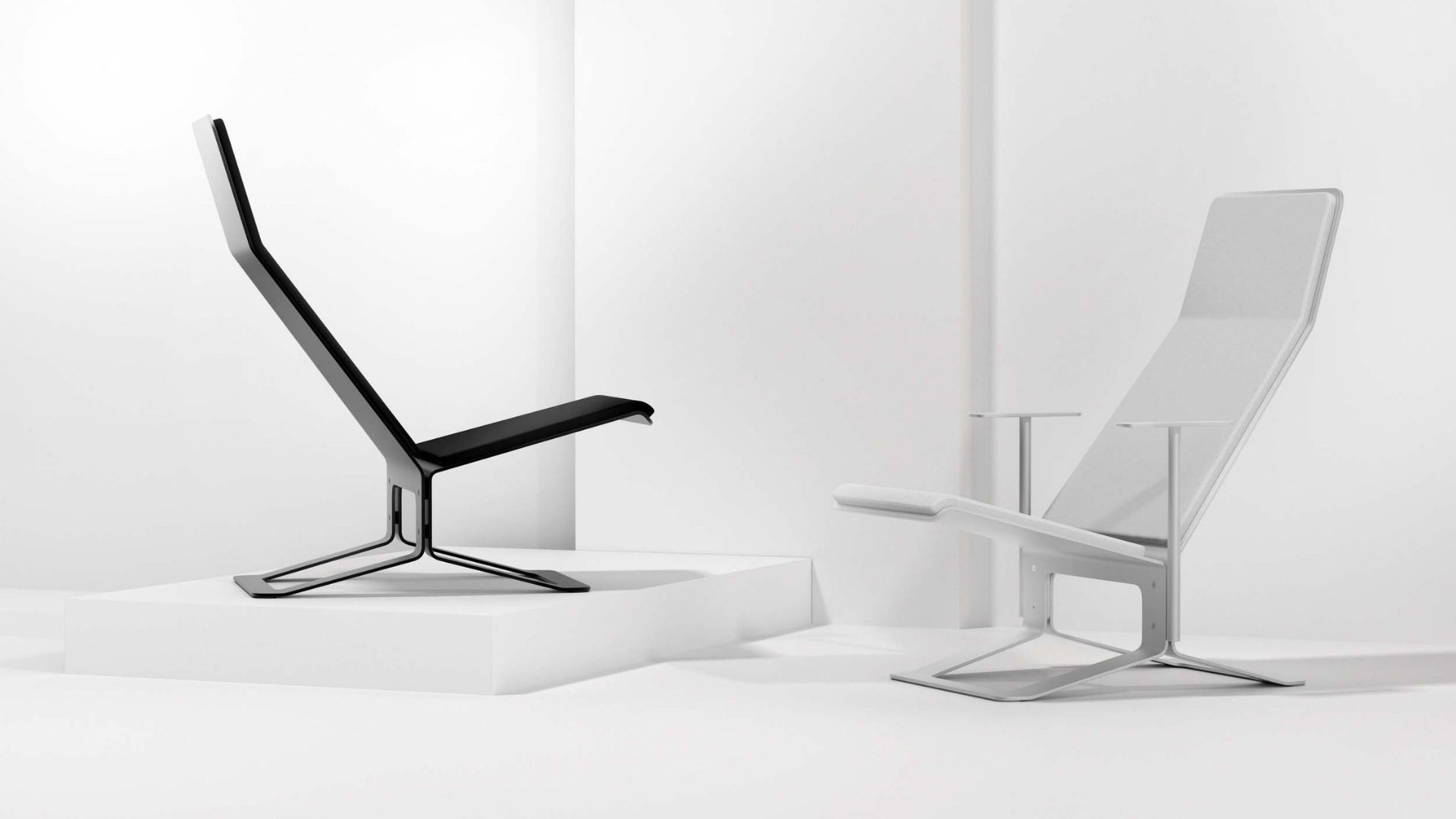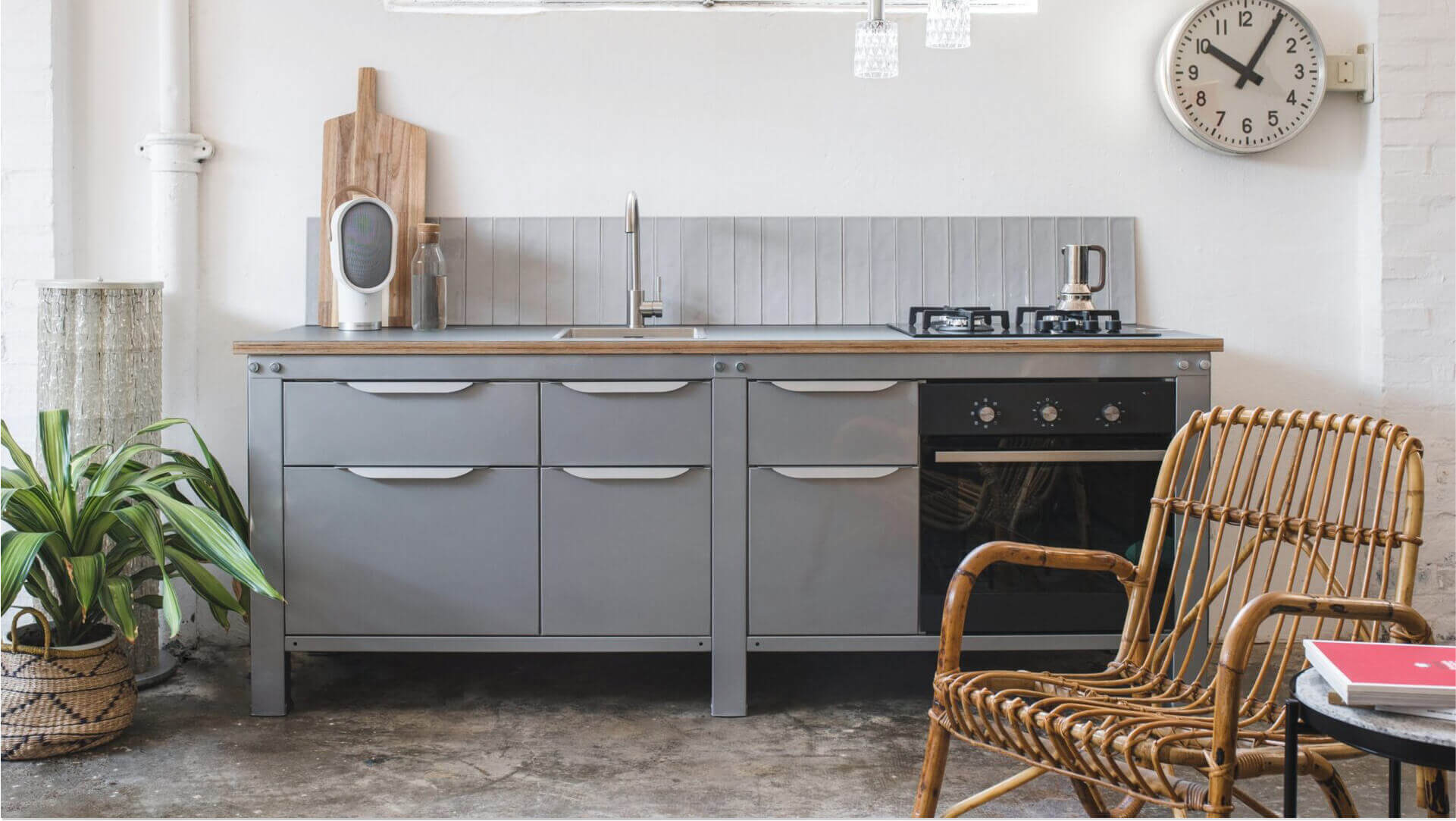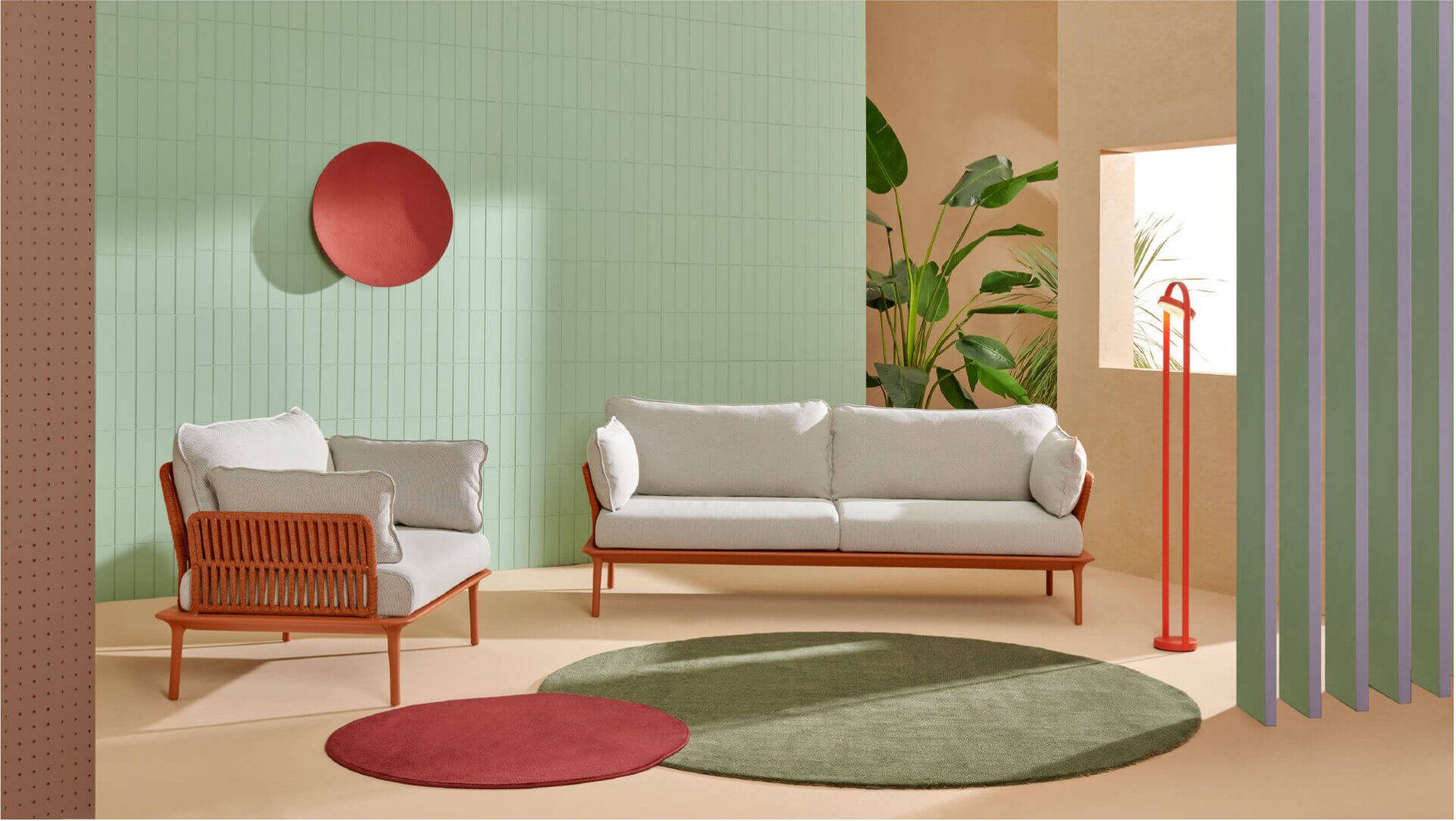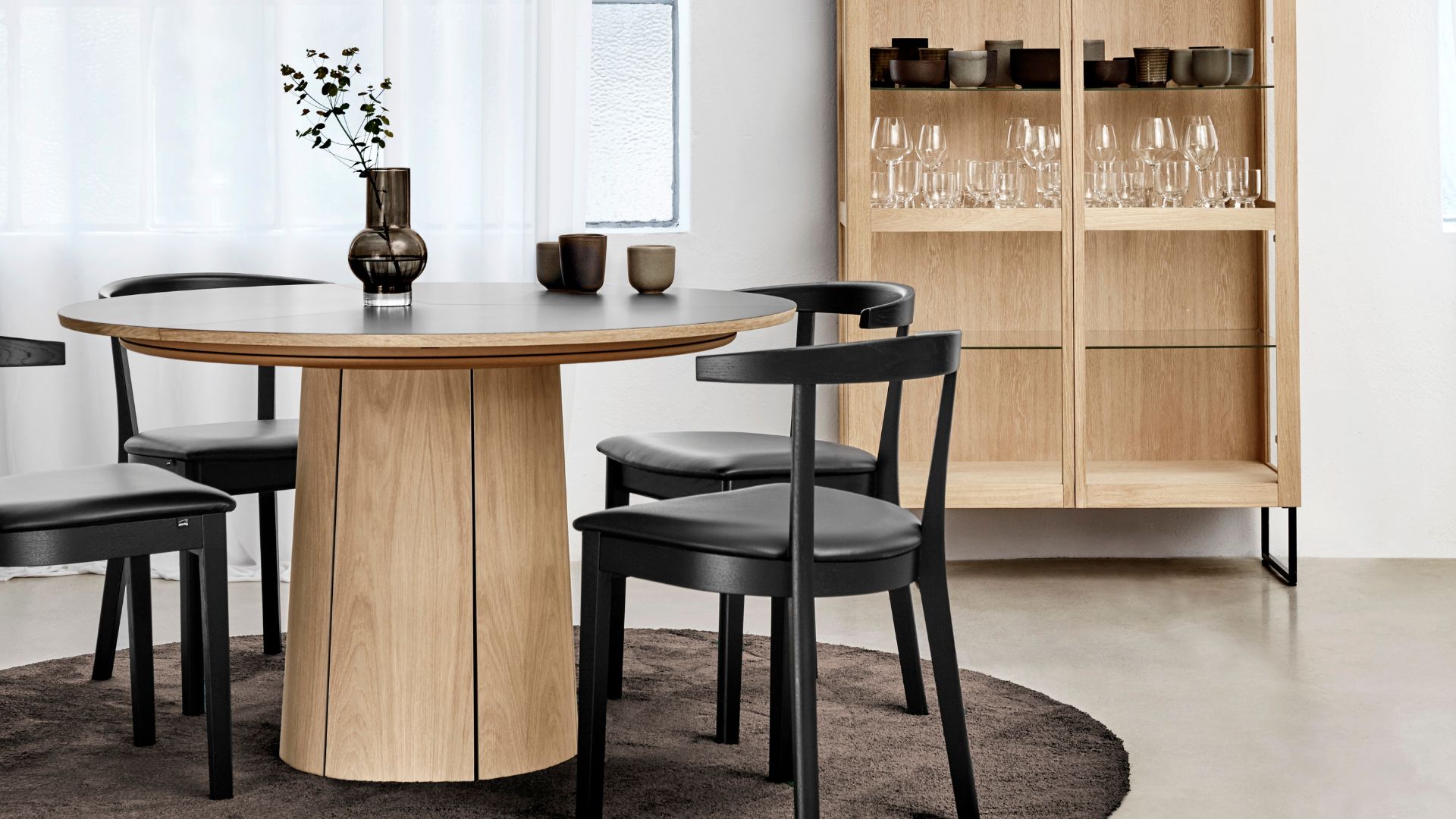Akunok: Abstracta’s acoustic office furniture for peaceful reflection and rest
The acoustic furniture by Abstracta and designer Maja Ganszyniec addresses two key challenges in modern workplaces: creating healthier sound environments for employee well-being and providing spaces for relaxation and escape.
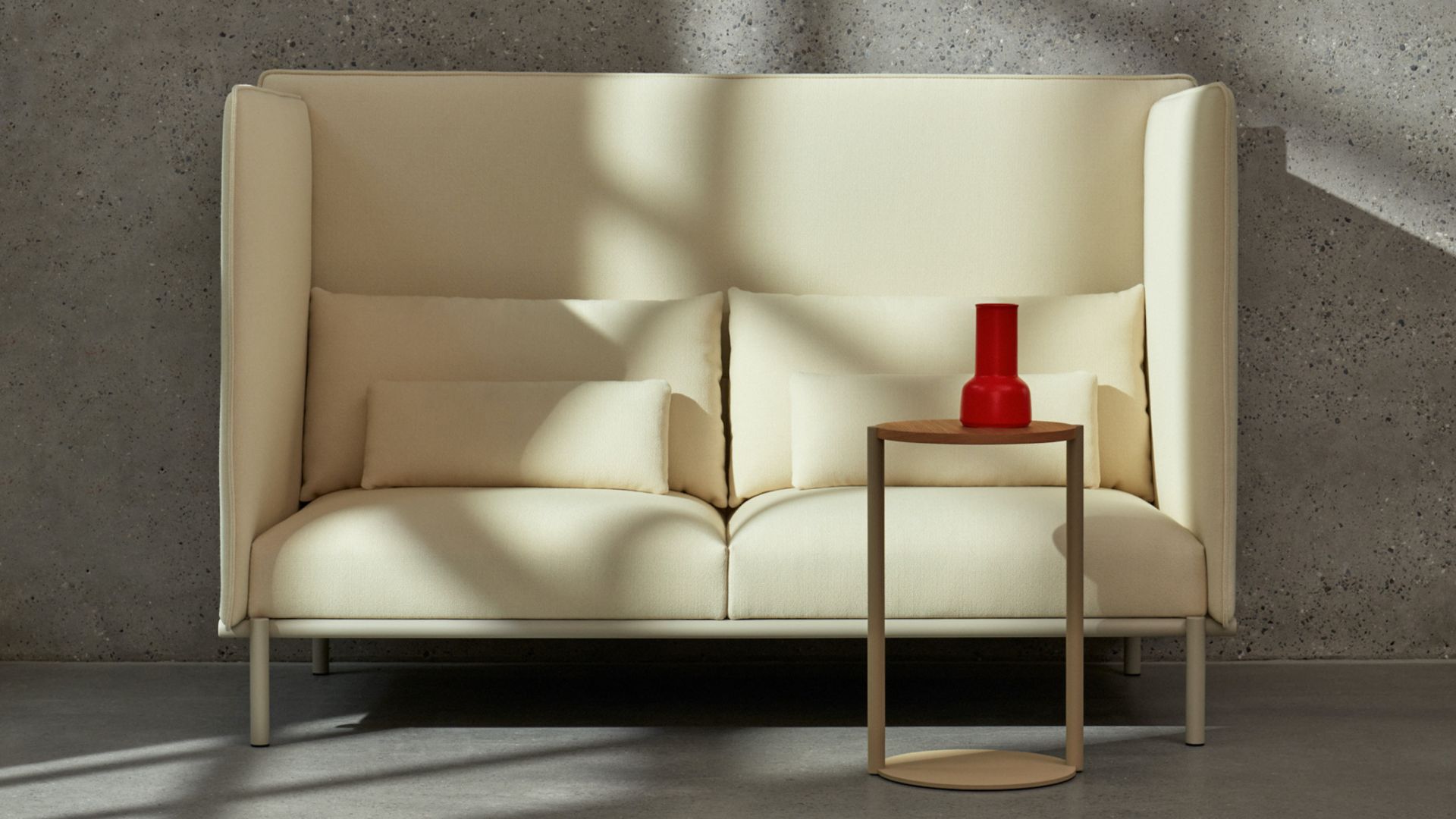
“When we started thinking about the project we tried to visualize the sound, how it travels through space and how to prevent it from wandering freely,” says Maja Ganszyniec, the designer behind Swedish design brand Abstracta’s latest collection. Called Akunok, this acoustic furniture concept includes a sound-absorbing high-back one-seater and two-seater, a floor screen, and two elegant tables: one round and one oval.
“Instead of focusing on form, we prioritized the architectural structure,” she adds. “This led us to design numerous offset panels at varying heights, creating a fragmented object in space with multiple corners and obstacles to disrupt incoming sound waves. Arranging armchairs or sofas side by side creates double walls with negative spaces between them, functioning as sound traps.”
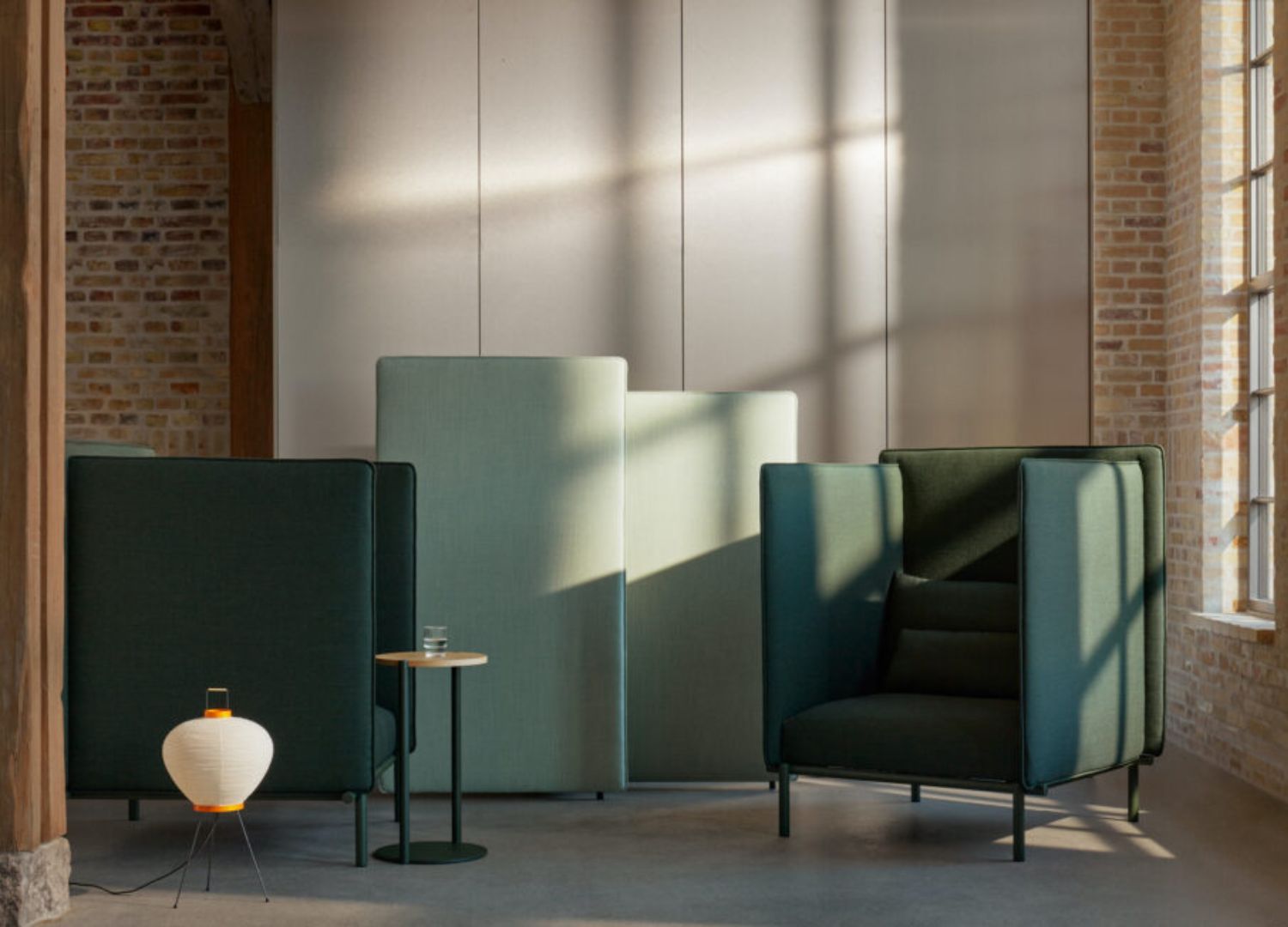
“The simplicity of the sliding doors in traditional Japanese houses inspired us,” she adds. “Positioned perpendicularly, they allow light to enter even when slightly opened. The geometry of flat surfaces arranged in various relationships influenced the overall visual language of Akunok.”
Designed for the office, Akunok acknowledges the shifting nature of workspaces as traditional desk-and-chair setups are moving to become more relaxed environments conducive to collaboration and spontaneous meetings. As a result, there’s a growing need for impromptu areas that prioritize comfort, encompassing not only ergonomic considerations but also acoustics.
To address this, the Akunok collection features an armchair and sofa with deep side panels that shield users from noise and visual distractions, enhancing focus. It features a generously deep, highback acoustic seat and pocket springs for maximum comfort and support.
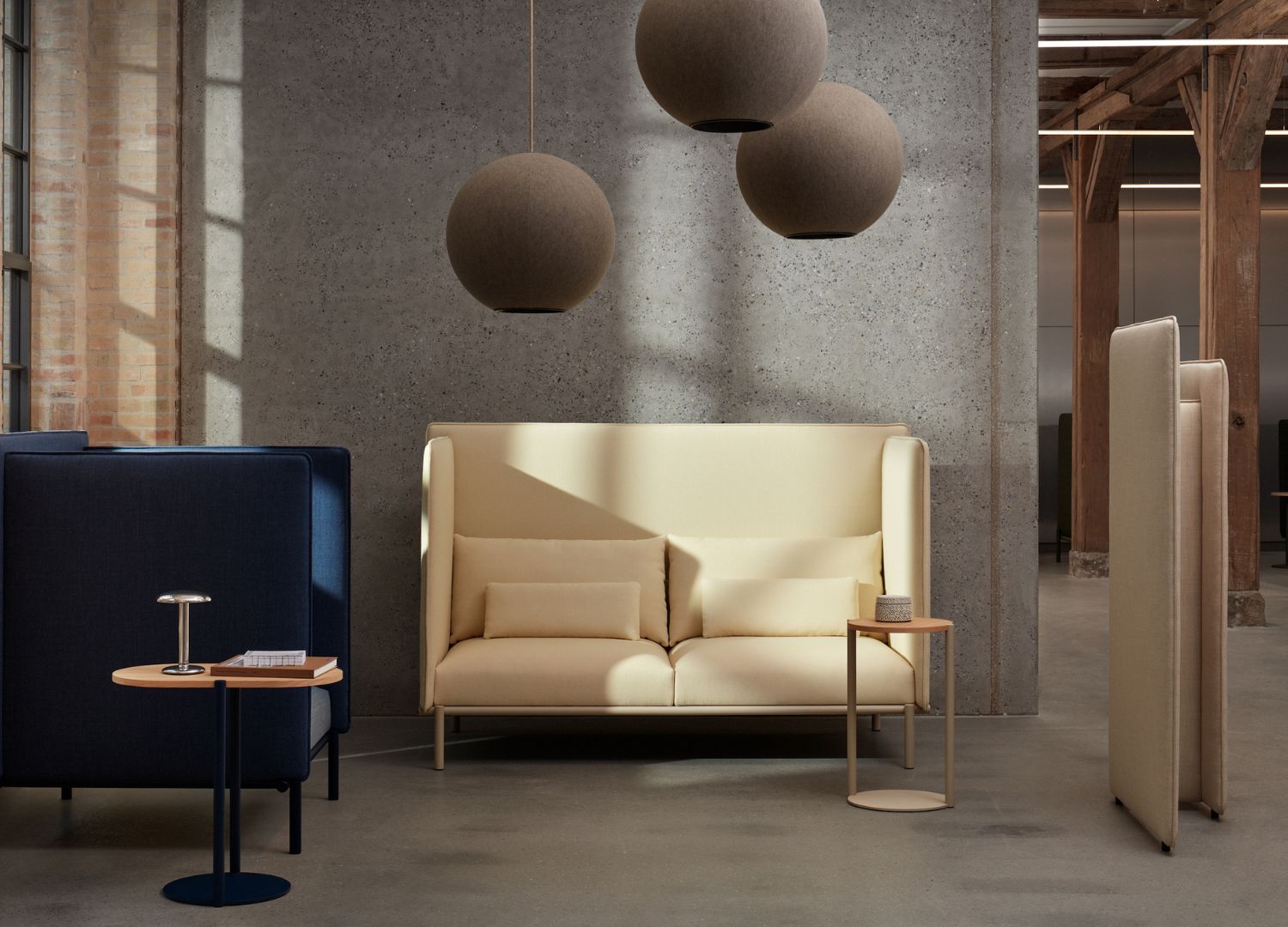
The collection features two side tables: a compact one for essentials like a coffee cup or phone, and a larger option perfect for laptop work. Additionally, a freestanding space divider is included, offering sound isolation and delineating smaller zones within open office layouts. Both tables boast oak tabletops, supported by a smart base with two tubular steel legs. This design allows users to pull the table forward, slightly overlapping the seat cushion. The base is customizable in various colors, adding versatility to the ensemble.
Finally, the series is complemented by two floor screens that can be assembled into various configurations. The space between these screens serves as a sound trap, enhancing acoustic performance. The self-supporting design of the floor screens ensures seamless furniture arrangement, as there are no protruding legs to contend with.
“Akunok is tailored for busy places with noise and activity, like open-plan offices and co-working spaces,” says Abstracta. “It’s great for outfitting areas like lobbies, libraries, and reading rooms, as well as enhancing sound quality and adding variety to big, open places like malls, train stations, and airports.“
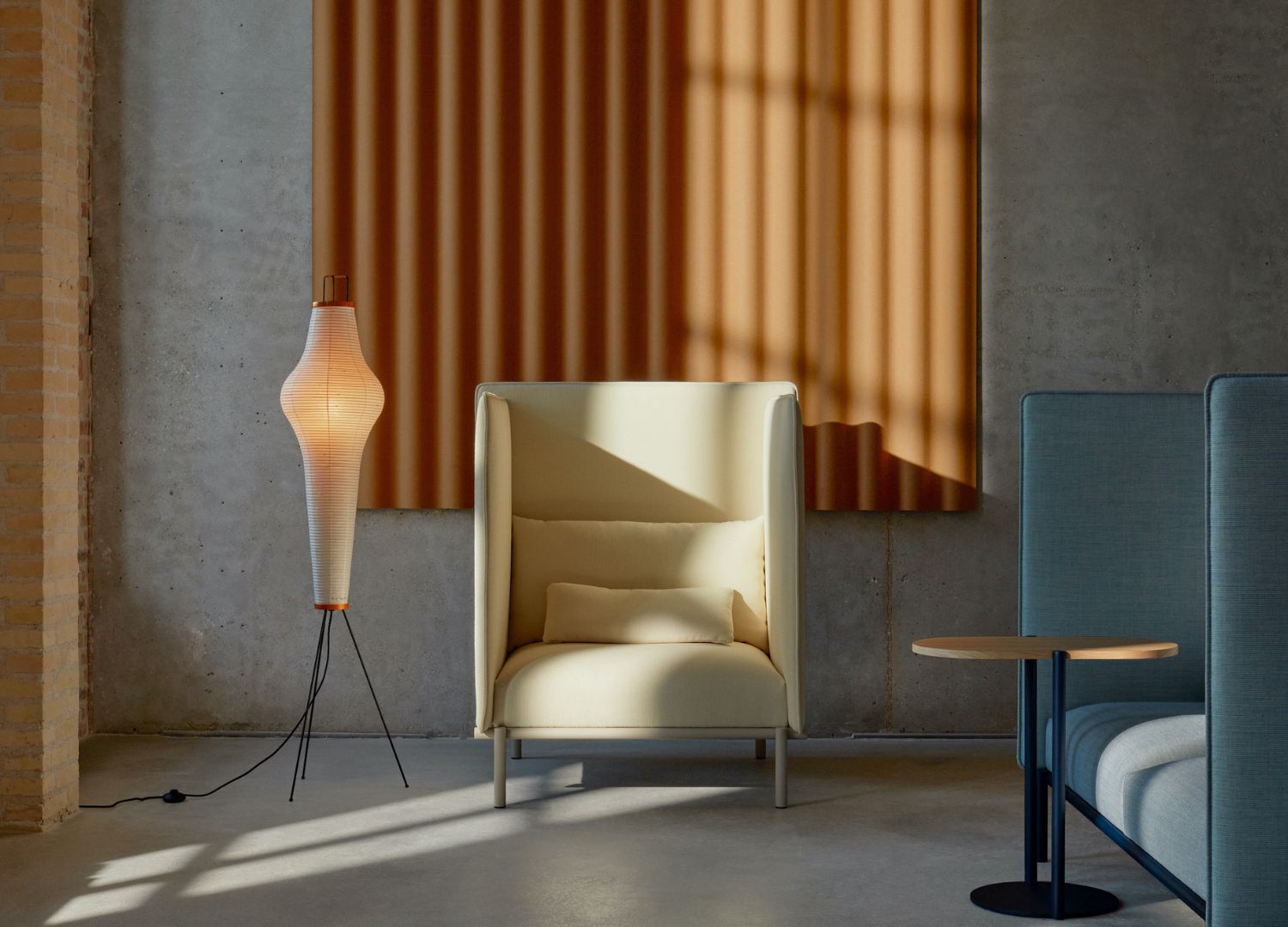
Beyond their general performance, an important goal was to enhance the space’s acoustic properties whilst reducing the environmental footprint. A regular practice of Abstracta is to work with Environmental Product Declarations (EPD) to achieve this whilst looking at ways to extend the product’s lifespan through durable design.
Together, Ganszyniec and Abstracta chose premium, long-lasting materials to ensure longevity, including the use of recycled PET panels and eco-labeled wool fabrics, which are acoustically efficient and more sustainable than industry-standard foam. It also includes a steel base made from recycled materials and a flat-pack construction to minimize CO2 emissions during transport.
This shared concern for the environment characterized the collaboration, which Ganszyniec said was characterized by a natural and fluid progression, as ideas and insights developed from one conversation to the next. Extensive discussions took place regarding the project’s ambitions and the significance of the new collection.
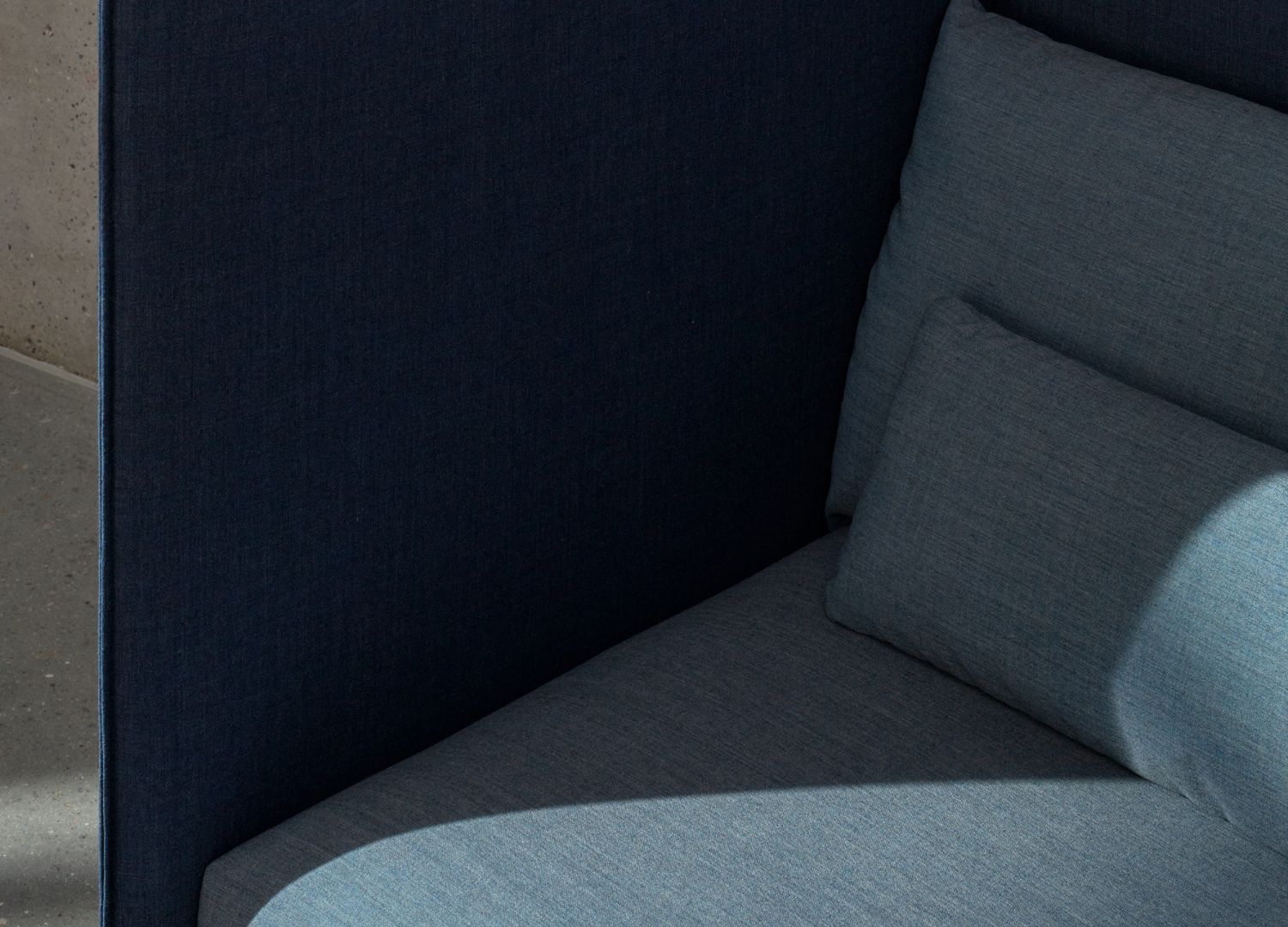
The team focused on defining their goals for introducing a new acoustic soft seating family to the market and the impact they aimed to achieve. Once these objectives were established, the design and development process advanced rapidly and efficiently, taking a total of a year and a half to complete the collection.
“The only challenging phase was the final one, where we selected colors and finishes,” explains Ganszyniec. “It was then I realized how southern my soul felt; coming from Poland, living in Sweden felt like how a Spaniard must feel in Poland. Despite our different definitions of “color,” we ultimately settled on a very pleasing palette. I believe these differences strengthened the final outcome, making it more thoughtful and robust.”
The elements of the Akunok family were rigorously tested for their acoustic properties in a specialized laboratory. This lab evaluates reverb, commonly known as echo, in a room both with and without the furniture. These tests measure the sound absorption levels of each piece. Remarkably, the Akunok family demonstrates nearly double the efficiency of its competitors; for instance, an Akunok armchair performs comparably to a competitor’s sofa.
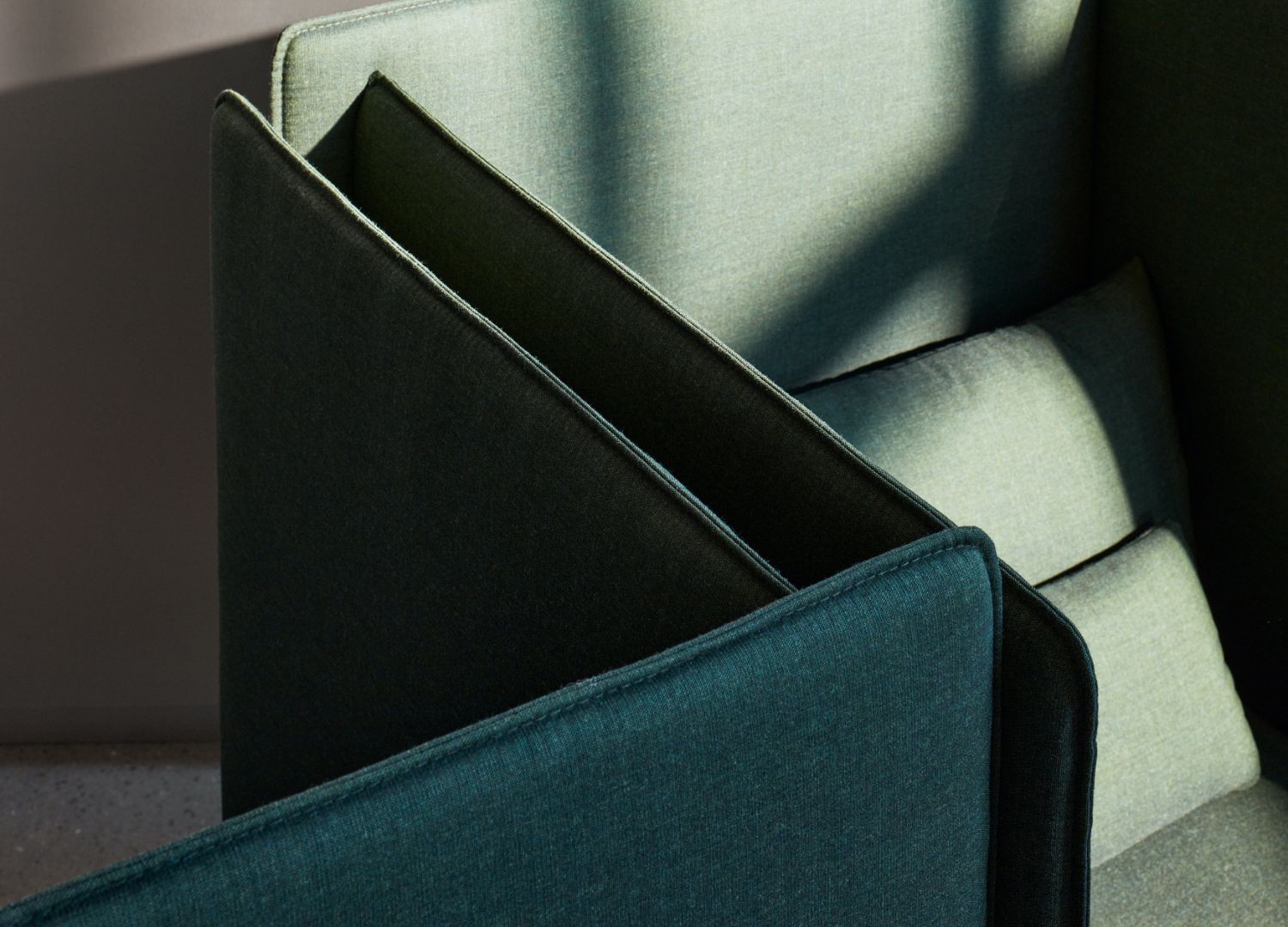
“For the Akunok project, our focus was on meetings,” says Abstracta. “We believe that, with the changes brought by COVID-19 and advancements like AI, face-to-face interactions are more important than ever. Whether digital or in person, people need spaces where they can connect. While Abstracta offers silent pods for formal meetings, Akunok provides relaxed environments for casual gatherings. These spaces offer privacy without feeling secretive, creating a comfortable setting for conversation.”
A notable feature of the Akunok family is its exceptional absorption of low frequencies, ranging from 125-250 Hz, in addition to high frequencies between 1000-4000 Hz. This achievement is attributed to the optimization of all product components for their acoustic properties, leveraging Abstracta’s expertise. For example, absorbers are placed on the underside of the sofa to enhance absorption at specific frequencies.
“The design struck a balance between incorporating enough absorbent panels to be effective without giving users an excessive sense of privacy, which could inadvertently cause them to speak louder,” adds Ganszyniec. “The goal was to optimize the product so that users would intuitively speak in lower voices, allowing for a more compact design.”
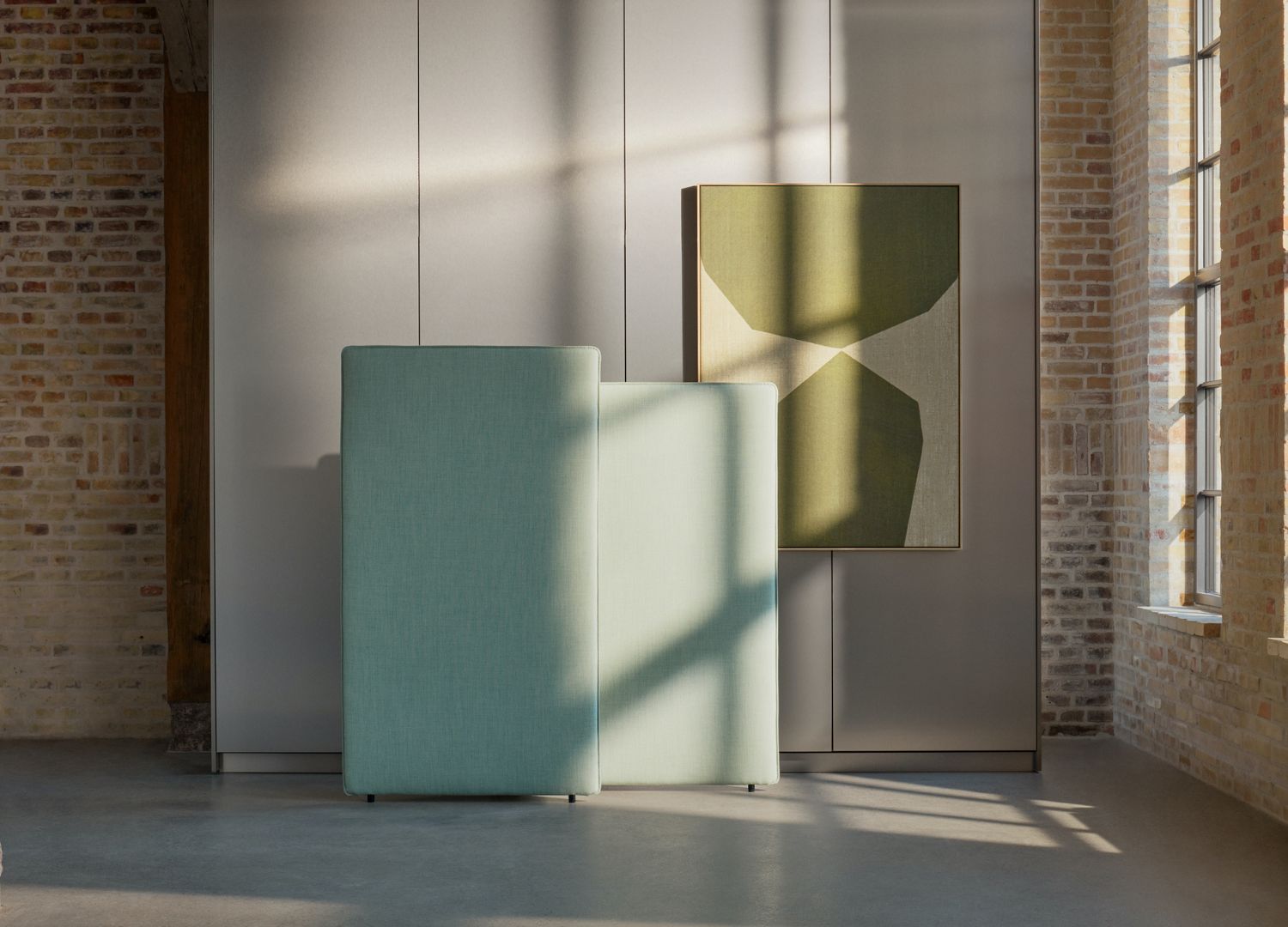
In contemporary office design, there’s a growing recognition of the diverse needs of individuals, informed by an increased consciousness of people’s more specific diverse needs, as well as the shifting attitudes of people post-pandemic.
“Being neuro-sensitive myself, I understand the challenges of working in a noisy environment,” says Ganszyniec. “Office spaces with concrete walls and glass panels remain popular, but until architects shift their preferences, people will seek alternative solutions.”
“The impact on one’s nervous system varies for each individual, and poor lighting or acoustic conditions can detrimentally affect health and motivation. Inclusivity in design means considering the needs of the most sensitive individuals, prompting a redefinition of what’s considered ‘normal’.”
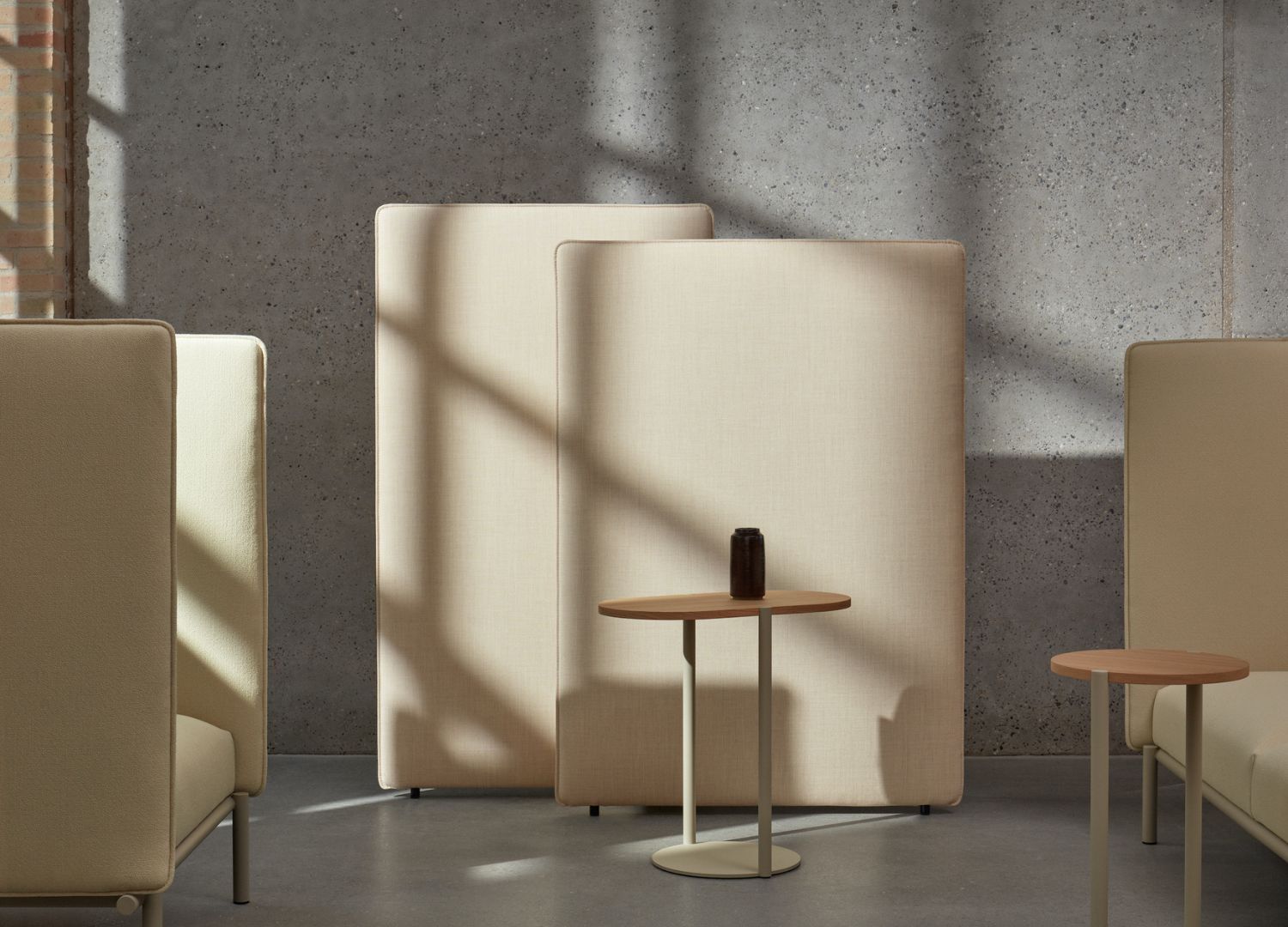
“After COVID-19, it’s clear we need to redefine the purpose of office spaces,” adds Abstracta. “With remote work becoming increasingly feasible, many struggle to entice employees back. We believe that whether in person or online, human interactions will gain significance.”
“To enhance these interactions, better acoustic solutions are crucial. While quiet surfaces aid focused work, it’s during conversations, formal or informal, that noise pollution disrupts productivity. By optimizing surfaces for conversations, we improve the overall soundscape for concentrated work.”






